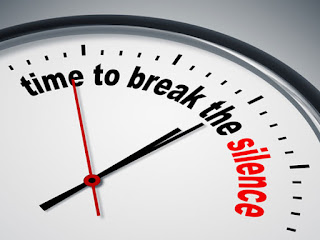Muhsin Ibrahim
@muhsin234
I came back to
Nigeria after a two-year stay in India. There has been so much to write about as
so many things have happened, and more are happening since my return. Yet,
procrastination wouldn’t allow me. I baulked at whether to write about this, that, and numerous other itching issues. I have also been so busy: getting
settled, resuming work, and making frequent visits to and from family and friends. And above all, there’s no uninterrupted power supply, no reliable internet access, and much more that were readily available in India. I had never thought
things would be that tough, let alone worse, before my return. Anyway, I
heartily thank Allah for making me happy against all odds.
I was contemplating which topic to focus on for my first blog post after a month-long break. They range from the accusation of some people
that President Muhammadu Buhari is now “Baba Go Slow”, or that he’s a northern
president, or his anti-corruption campaign, to the tussle in the national
assemblies, the rampage of the lunatics called Boko Haram in the north-eastern
states of Nigeria, among others. From abroad, so many other writing-worthy incidents and accidents have occurred, including the legalisation of same-sex marriage in the US, the discovery of what might be the oldest copy of the Qur’an, the war in Yemen, etc., etc., etc.
Following my
protracted absence, a very kind, caring friend from the US asked me how I was
adjusting since my return. As a fellow Nigerian, I opened up to him, and he
dittoed. We ultimately met at a point when there was no hope for Nigeria. We both
share faith in the current leadership of the country, but to be very realistic
and honest, he (President Buhari) can fix only a few of its many ills. For him
to achieve even that, it will take a lot: an undue commitment, persistent patience, steadfast prayers, and collective support from the public, along with a great deal of assistance
from the people he works with in the government.
On the other
issue, I have been feeling guilty of some sort. I think I should apologise to my Indian readers for dragging their country through the mud in some of my articles. I had held a rather refined image of Nigeria while away. I didn’t know things were that bad until I landed at the Malam Aminu Kano International Airport (MAKIA), Kano.
Right before our flight took off, all I could see was a dry place with only two flights on the ground, one of which apparently looked inoperative. The airport was literally
moribund compared to the ones we left in India (Mumbai) and transited at in
Ethiopia (Addis Ababa). Both were lively and vibrant with flights everywhere
and people (passengers and the airport staff) going about their ways. Again,
where there were several modern trolleys for passengers to choose from, with free baggage space in Mumbai (and elsewhere), the ancient-looking trolleys here
are very few, and one has to pay N300 to use one. There are many other
unmentionable things; perhaps topics for another day.
Living expenses in Nigeria have surpassed those in India, though the latter’s economy is stronger and its currency more valuable. Our educational system, although still pulsating,
in some sense of the word: “pulsating”, we however yet live in the old age of
analogue. It takes days, weeks, or longer to send a single memo, letter, or other document from
one office to another. When will we ever develop? What exactly is pulling us down as others, including much poorer nations? The recent world university ranking should serve as a reawakening call to our policymakers and to us. Where
in the first best 1000 universities in the world no single Nigerian university
was listed, about six South African universities, one each from Egypt, Morocco
and Uganda (!) made the coveted list. How come? Electricity is still largely
a privilege in Nigeria. This alone can truncate our presence in any comparable global university ranking.
As a final note, I would like to especially salute many of my Nigerian teachers, students, and
friends who write quite often. This is a commendable action which not everyone
could do. The so-called ‘Nigerian Factor’ weakens productivity. It starves
intelligence, or kills it if care is not duly taken. But despite all this scorching pressure, they stand up, write, and even publish. They deserve
accolades. God willing, someday this menacing “factor” will be a history to
tell. Nigeria shall be great. In sha Allah.

Comments
Post a Comment